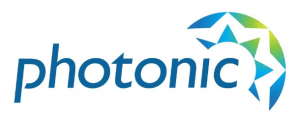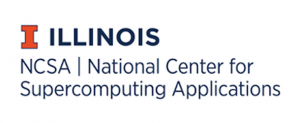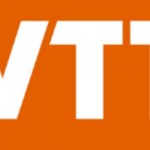Quantum News Briefs October 30: TELUS and Photonic Inc. Announce Collaboration On Quantum Communications • D-Wave Announces Appointment of Two New Board Members • Sparkle Launches Quantum Safe Over Internet Service • NCSA’s New Project Paves Path to Quantum-Resistant Cyberinfrastructure in Scientific Computing

TELUS and Photonic Inc. Announce Collaboration On Quantum Communications
 TELUS announced on October 20 a collaboration with Photonic Inc., a BC-based company, to accelerate the development of quantum communications in Canada. TELUS will provide Photonic dedicated access to its fibre-optic network, enabling the testing of quantum technologies and emerging solutions that can improve the digital landscape and drive economic growth.
TELUS announced on October 20 a collaboration with Photonic Inc., a BC-based company, to accelerate the development of quantum communications in Canada. TELUS will provide Photonic dedicated access to its fibre-optic network, enabling the testing of quantum technologies and emerging solutions that can improve the digital landscape and drive economic growth.
Photonic’s collaboration with TELUS provides a path for industries such as finance, security and logistics to prepare for a quantum-secure future.
As part of this collaboration, TELUS is providing Photonic access to a 30-kilometre dedicated fibre network in British Columbia – configured to test increasingly complex quantum networking that leverage quantum encryption for ultra-secure, tamper-evident transfer of information over long distances.
D-Wave Announces Appointment of Two New Board Members
 D-Wave Quantum Inc. (NYSE: QBTS), a leader in quantum computing systems, software, and services and the world’s first commercial supplier of quantum computers, announced on October 30 the appointments of veteran technology industry leaders, John DiLullo and Rohit Ghai, to its board of directors. The new board members join at a key time for the company, as it executes an aggressive go-to-market strategy designed to rapidly accelerate the adoption of its annealing quantum computing solutions across global businesses, research institutions and government agencies.
D-Wave Quantum Inc. (NYSE: QBTS), a leader in quantum computing systems, software, and services and the world’s first commercial supplier of quantum computers, announced on October 30 the appointments of veteran technology industry leaders, John DiLullo and Rohit Ghai, to its board of directors. The new board members join at a key time for the company, as it executes an aggressive go-to-market strategy designed to rapidly accelerate the adoption of its annealing quantum computing solutions across global businesses, research institutions and government agencies.
John DiLullo currently serves as chief executive officer at Deepwatch, a leading managed security platform for cyber resilient enterprises. With a track record spanning more than 30 years in technology, including more than 15 years in networking and cybersecurity, DiLullo brings leadership expertise in growth and profitability transformation. A long-time customer advocate, DiLullo is focused on improving a customer’s technology adoption experience, championing customer success and ROI, and embracing specialized routes to market for significant growth. Prior to his role at Deepwatch, DiLullo held CEO positions at LiveVox and Lastline Security, as well as senior executive level positions with F5 Networks, HP/Aruba Networks, Cisco Systems, and Sonicwall.
Rohit Ghai is currently the chief executive officer of RSA, a global leader in identity and access management solutions for security-first organizations. Ghai has experience in both startups and large enterprises, with expertise in digital transformation in highly regulated markets and knowledge across software, systems and security. Ghai was president of RSA during its tenure as a Dell Technologies business. Prior to that, he served as president of Dell EMC’s Enterprise Content Division and held senior engineering and management roles at Symantec, Computer Associates and Cheyenne Software.
Sparkle Launches Quantum Safe Over Internet Service
 Sparkle launched its Quantum Safe over Internet (QSI) service as the first product in its Network as a Service (NaaS) suite as per October 29 Network Digest, The service targets enterprises in France, Greece, and the UK. QSI, now available for pre-order, offers companies the chance to establish quantum-secure connections through Sparkle’s on-demand, MEF-compliant Internet access, safeguarded by post-quantum encryption.
Sparkle launched its Quantum Safe over Internet (QSI) service as the first product in its Network as a Service (NaaS) suite as per October 29 Network Digest, The service targets enterprises in France, Greece, and the UK. QSI, now available for pre-order, offers companies the chance to establish quantum-secure connections through Sparkle’s on-demand, MEF-compliant Internet access, safeguarded by post-quantum encryption.
QSI supports companies by providing secure connections between offices and access to cloud resources, protected against the potential threats of quantum computing. The service can be managed via Sparkle’s dedicated portal or API, making it accessible and fully automated. Currently, QSI is available for pre-order at Sparkle’s points of presence in Paris, London, and Athens, with further use cases to be added soon.
The announcement listed these features available now:
• Quantum-Safe Connectivity: Protects against quantum computing risks
• Flexible NaaS Approach: Accessible through a portal or API
• Availability: Pre-orders open in Paris, London, and Athens
• Service Scope: Post-quantum secure on-demand Internet access
• Use Case: Tested on international VPNs and fiber-optic networks
NCSA’s New Project Paves Path to Quantum-Resistant Cyberinfrastructure in Scientific Computing
 Researchers at the National Center for Supercomputing Applications are addressing the issue of what happens when quantum computing reaches the limit of the cyber infrastructure and network security capabilities of today as per the announcement on October 29.
Researchers at the National Center for Supercomputing Applications are addressing the issue of what happens when quantum computing reaches the limit of the cyber infrastructure and network security capabilities of today as per the announcement on October 29.
“The problem is urgent because practical quantum computers will break classical encryption in the next decade,” said NCSA Research Scientist Phuong Cao. “The issue of adopting quantum-resistant cryptographic network protocols or post-quantum cryptography (PQC) is critically important to democratizing quantum computing. The grand question of how existing cyber infrastructure will support post-quantum cryptography remains unanswered.”
Cao and Jakub Sowa, a University of Illinois Urbana-Champaign undergraduate student and participant in the Illinois Cyber Security Scholars Program as well as the CyberCorps: Scholarship for Service. Their findings proposed the design of a novel PQC network instrument housed at NCSA and the University of Illinois, and integrated as a part of the FABRIC testbed; showcased the latest results on PQC adoption rate across a wide spectrum of network protocols; described the current state of PQC implementation in key scientific applications like OpenSSH and SciTokens; highlighted the challenges of being quantum-resistant; and emphasized discussion of potential novel attacks.
Cao is the principal investigator in a recent $200,000 award from the U.S. National Science Foundation (NSF) for a plan on “Quantum-Resistant Cryptography in Supercomputing Scientific Applications.” This will enable a network instrument to measure the adoption rate of PQC and allow universities and research centers to switch to PQC in order to safeguard sensitive data and scientific research.



















